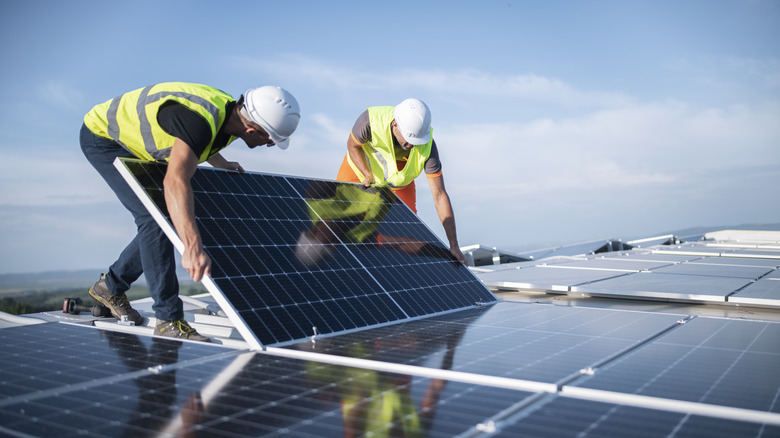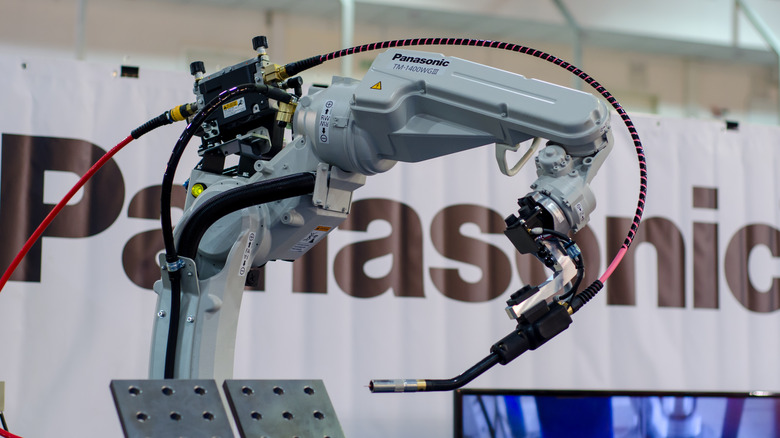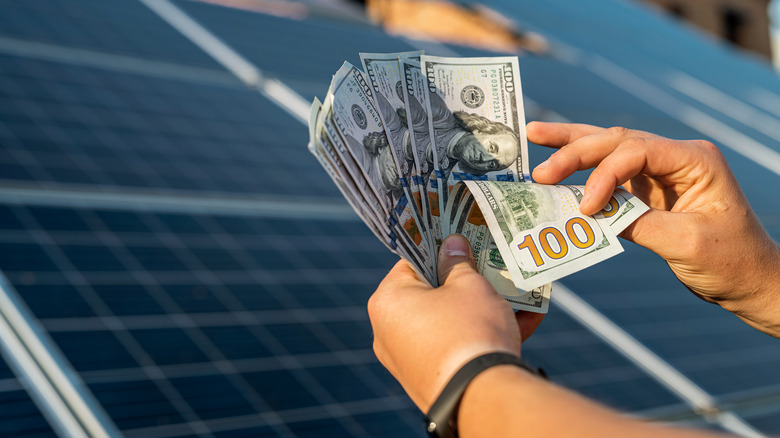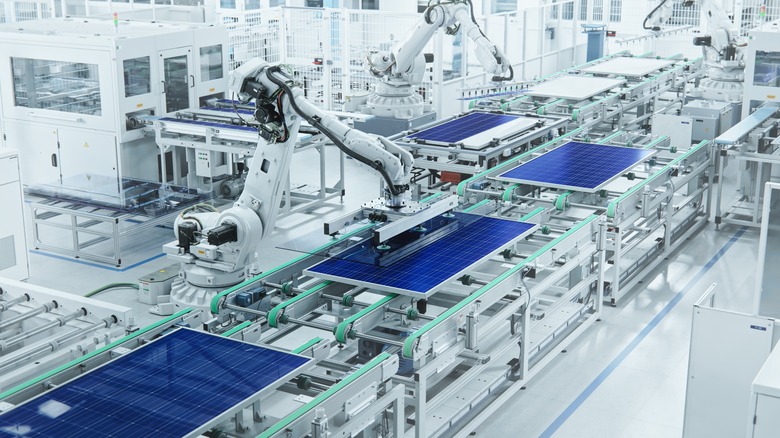Who Makes EverVolt Solar Panels And How Much Do They Cost?
You might not have ever heard of EverVolt, but you've almost certainly heard of Panasonic. It's the company behind the solar panel brand, which means EverVolt products come with a global reputation at stake. Nonetheless, brand recognition doesn't guarantee quality, so the cost-value of EverVolt products is still worth investigating.
We've covered solar panel tech extensively, with guides on setting up solar panels on tiny houses, calculating solar coverage for RVs, and determining which type of panel is the best. Now, we've set our sights on EverVolt to discover where exactly the brand comes from and whether its prices are worth the investment.
The short answer? Thanks to outsourcing manufacturing to original equipment manufacturers (OEMs), EverVolt solar panels are competitively priced for their quality. You might hear Panasonic and think its EverVolt products come with premium price tags. However, your final bill all depends on the model that you choose, and there's a lot to consider. With generous warranties and modular designs that let you mix, match, and upgrade components to the system, EverVolt's price value isn't just based on the dollar amount alone.
EverVolt is no longer built in Panasonic factories
Panasonic released EverVolt in 2019 and began production in its Malaysian and Japanese manufacturing plants. The product line includes solar panels, solar batteries, and modular kits for integrating the entire setup into residential energy systems. Then, in 2021, the company made a big change to its business model. Rather than building EverVolt solar panels in Panasonic factories, OEMs would be shouldering the production and assembly moving forward. The Malaysian and Japanese Panasonic plants discontinued the manufacture of EverVolt solar panels in 2022.
Now that manufacturing has been outsourced, a single EverVolt module can contain parts from several different countries, including Japan, Canada, Germany, Mexico, and the United States. Essentially, EverVolt products are now made by subcontractors rather than Panasonic itself. This move was, in Panasonic's own words, intended to create "an ecosystem of residential energy products, including solar panels, instead of focusing exclusively on manufacturing." That explanation is a bit ambiguous, but the bottom line likely involves costs and supply-chain demands.
Reading between the lines, it seems that subcontracting out manufacturing to an OEM helps keep costs competitive among domestic markets. Rather than building EverVolt products in one or two Panasonic factories and then selling them wholesale to small-scale installers and merchants, Panasonic can keep its brand name on the EverVolt line while maintaining a dynamic supply chain. This may also allow the Japanese electronics giant to release new products more quickly without getting bottlenecked by numerous international hurdles all at once. Whatever the reason might be for Panasonic's switch to contracting manufacturing to OEMs, the move seems to benefit customers. Indeed, EverVolt solar panels are more competitively priced than ever.
EverVolt solar panel pricing: The higher the wattage, the higher the cost
Before factoring in the cost of the rest of the module, like storage and installation, you can find and compare the prices of individual EverVolt panels. For example, the 400W panel with model number EVPV400HK typically falls between $437 and $507, with many merchants pricing it at about $488 at retail. That being said, new design releases will sometimes bump earlier models to the clearance rack, leading to discounted prices.
As with most solar panel brands, EverVolt pricing is usually correlated to the wattage of the panel. For example, the 360W EverVolt panel with model number EVPV360PK has a price range of $355 to $410. Comparing that to the 400W example above, also from the same Black Series, we can see a price difference of about $100. Again, the variability of the price is affected by supply and new model releases, so you might be able to find discounts.
Once you have an EverVolt model and its price-per-panel, you can estimate the total cost of coverage by multiplying the individual panel price by the number of panels you'll need. Our guide to calculating how many solar panels you'll need uses 10 panels in its example. Thus, if you decide on the 400W EverVolt model discussed above, at $488 per panel, your cost estimate comes to about $4,880. But these raw prices don't paint a complete picture of EverVolt solar panels' cost-value. To get a better idea, it's useful to compare EverVolt with other top competitors and consider what Panasonic is actually offering for these prices.
The price value of EverVolt: Solid tech with exceptional warranties
Solar panels have definitive prices, but the value proposition isn't as cut-and-dry. Panasonic claims a "superior module efficiency" of about 22%, which is a worthy consideration for those with limited roof space. High efficiency and low annual degradation rates mean you can get more juice per unit of surface area. Panasonic backs up the claim with a 92%-power-output guarantee built into its 25-year warranty.
According to EnergySage.com, EverVolt has the second-best warranty in the industry, falling below only SunPower and ranking above Aptos Solar, Solaria, and Silfab. For example, the EverVolt Black Series 370W model comes with a 25-year product warranty, which provides coverage for "performance, product, parts and labor." There are two warranties, called AllGuard and TripleGuard, so make sure to read the fine print.
Other EverVolt products offer substantial warranties as well, such as the 12-year "product and labor" coverage for EverVolt Home Battery systems. Thus, a complete module may have different coverage policies for the different components, so you can contact Panasonic's sales department to figure out an accurate estimate.



